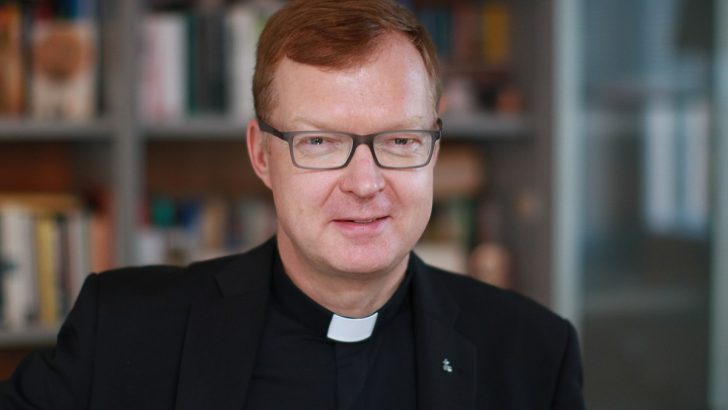Even though the Church has all the necessary norms and laws in place to safeguard minors from abuse by clergy, the problem continues to be a lack in understanding or caring about those rules and guidelines and applying them effectively, said one Jesuit expert.
What must change “without a doubt” are Church procedures for handling accusations of abuse, said Jesuit Fr Hans Zollner, head of the Pontifical Gregorian University’s Center for Child Protection.
The legal process “must be more transparent and more transparent for everyone”, including the victims, the accused and his or her superiors, Father Zollner told reporters at a ceremony awarding 18 people – religious and laity – diplomas for completing a specialisation course in safeguarding minors.
Victims receive no information during the process and the accused are left “in limbo” for what may be five years or more not knowing if they will be sentenced or even found guilty, he said.
So while the Church’s definitions of what constitutes a crime and suggested sentences are clear, he said, what needs addressing is how to beef up the Church’s legal system so that it can “actually bring justice to everyone” and truly protect minors.
Decision
Reporters also asked Fr Zollner about his thoughts concerning Pope Francis’ decision to believe Bishop Juan Barros of Osorno, Chile, and not victims who claimed the bishop may have been aware of and even present during their abuse by the bishop’s former mentor, Father Fernando Karadima. The priest was sentenced to a life of prayer and penance by the Vatican after he was found guilty of sexually abusing boys.
Fr Zollner, who had been a member of the Pontifical Commission for the Protection of Minors since its inception in 2014, insisted the Pope does listen, and he knows that personally from being an interpreter for two German abuse survivors who had separate and lengthy private meetings with the Pope in 2014.
The meetings had a hugely positive impact on the emotional and spiritual well-being of those two survivors, the German Jesuit said.
But when pressed about doubts over whether the Pope listened to a Chilean survivor who had written a letter to the Pope that was to be hand delivered by Cardinal Sean O’Malley, head of the Papal commission, Fr Zollner said he would have no way of knowing whether the Pope read the letter.
Yet, he said that when he once handed the Pope two letters, “I am quite certain he did not open these letters” based on the nature of the Pope’s response.


 Fr Hans Zollner SJ
Fr Hans Zollner SJ